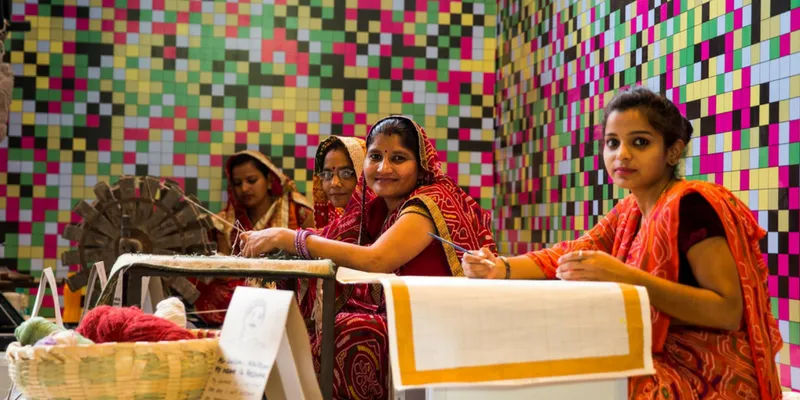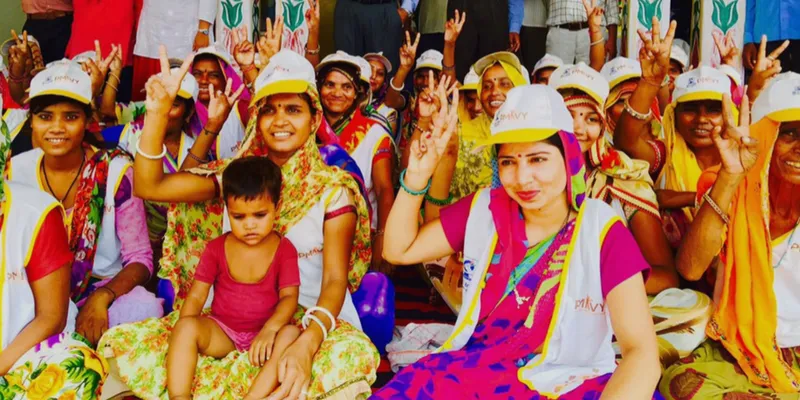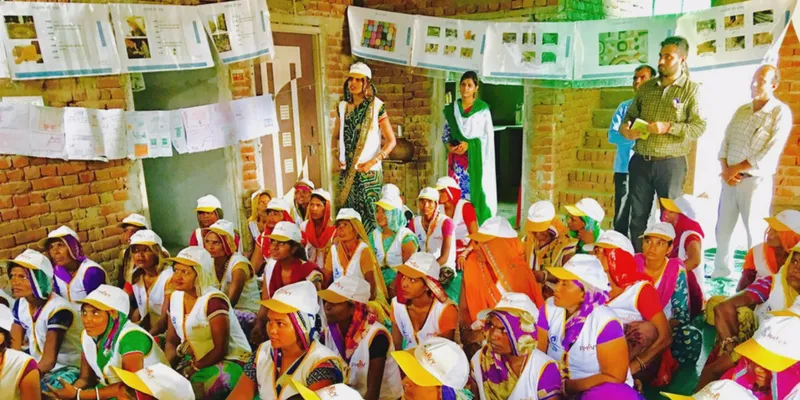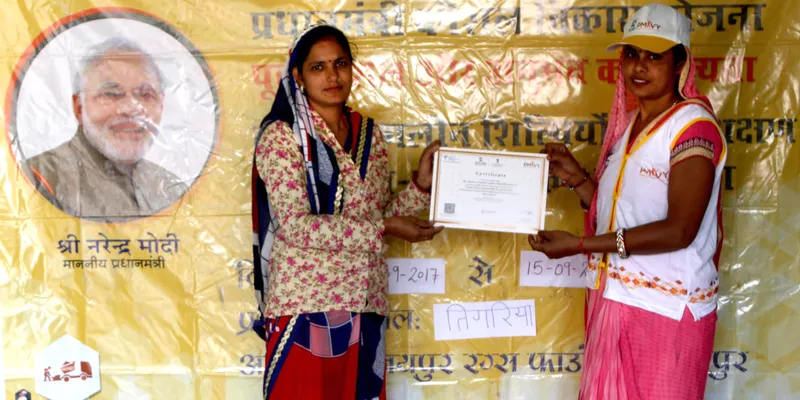Talented yet unrecognised: how Skill India is on a mission to certify skilled workers
The Recognition of Prior Learning is not only recognising the skills honed by individuals in the informal sector but the programme is also improving the employability and livelihood of the existing workforce.

For the first time in over thirty years Preeti Devi, from Aaspura village in Jaipur, was pushed to search for her own identity and understand her skills, her passion. Participant of the ‘Recognition of Prior Learning’ (RPL) training programme, initiated by the National Skill Development Corporation, Preeti says, “Initially, it was felt that these topics were far from our rustic reality but through this training, we realised the importance of strengthening our self-confidence not only as weavers but as women as well.”
Kiran Devi, another participant in the training programme, tells me, “I now know how to take care of my health and safety at the work site. Also, I learned how to transact without cash and its many advantages.”
Preeti and Kiran, both belonging to the rural areas in Jaipur district, are among the 4,999 candidates who have been certified under the RPL programme. The importance of this training programme lies in the fact that lakhs of artisans and weavers are gaining a government recognition.
Jayant Krishna, Executive Director and Chief Operating Officer of NSDC, says, “India has a large pool of talent available in every state, which is crucial for the success of Skill India Mission. With the help of RPL programme under Pradhan Mantri Kaushal Yojana (PMKVY), we are not only recognising the skills in the informal sector but are also improving the employability and livelihood of the existing workforce. It is our responsibility to provide the right opportunities for creating a sustainable ecosystem to nurture this talent.”
Since its launch in 2016, over the two years, nearly 5.7 lakh candidates have been certified under the RPL programme.
The need
Across India, these individuals who primarily work in the unorganised sector learn skills on the job— either by observing people or working under their guidance or through complete self-learning. Hence, as a result, even though they manage to get a job and earn a livelihood, they may not be able to improve their skills, affecting their productivity and quality of output.

Getting skilled manpower is a big challenge for Indian trade and business; especially in the textile industry. It is expected that nearly 61.6 million skilled manpower will be required in the apparel and textile sector by 2022, to meet the growing demands. To help achieve this goal, NSDC collaborated with Jaipur Rugs Foundation, a not-for-profit organisation and India’s largest manufacturers of hand-knotted rugs, to provide skill training under RPL to 5,000 artisans.
Carpet weaving is one of the oldest forms of craftsmanship that continues to exist and even thrive in the country today. Currently, India is responsible for the worldwide export of almost 40 percent of hand-knotted rugs.
Rajesh Agarwal, Joint Secretary at Ministry of Skill Development and Entrepreneurship (MSDE) says, “Minority communities in India are known for their traditional skills, arts and crafts and have been widely acknowledged across the world. A combination of poor socio-economic conditions of youth belonging to such craftsmen and artisan families, and the better prospects available elsewhere has caused many to seek jobs outside their ancestral occupation. There is, therefore, a dire need to preserve these arts and crafts and support livelihood at the same time.”
Through this partnership with Jaipur Rugs Foundation the Ministry of Skill Development and Entrepreneurship aims to up-skill, assess and certify these artisans.
The programme structure
Essentially, through the scheme, the government plans to impart skill-based training to one crore people between 2016 and 2020, and RPL will account for nearly 40 percent of these candidates whose prior experience and skills will be assessed and certified. Individuals with work experience, who have acquired skills informally or on the job, are invited to participate in this programme.
The aim of the programme is to create a level playing field between academically or formally trained and the unskilled or informally trained workforce.

The training involves mandatory 12-hour orientation which focuses on soft skill, entrepreneurship, digital and financial literacy. The candidates have the opportunity to avail Pradhan Mantri Bima Yojana and loans under Pradhan Mantri Mudra Yojana. The programme not only enhances the career/employability opportunities of an individual but also provides alternative routes to higher education.
For instance, in Rajasthan, the ministry has partnered with Jaipur Rugs Foundation, to reach out to remote rural areas and establish bonds with the grassroots communities. Their aim is to enable the rural artisans and weavers to continue the rug weaving tradition in a viable manner, thereby, bringing significant improvement in their own lives.
The programme involves 72 hours of training on domain skills in multiple sectors including agriculture, apparel, textile, leather, tourism & hospitality.
Impact
Till date, the RPL team has conducted the skill certification programme in 78 villages of five districts spread across Rajasthan and Jharkhand. Across India, 433 districts have been covered and over 5,70,000 individuals have been trained.

Thirty-year-old Kiran Devi concludes, “Before I attended this training, I would never step outside the premises of my home. But now, I have started interacting with people confidently. I have also started speaking about myself and the work that I do and also I talk about my learning journey during the RPL training.”







